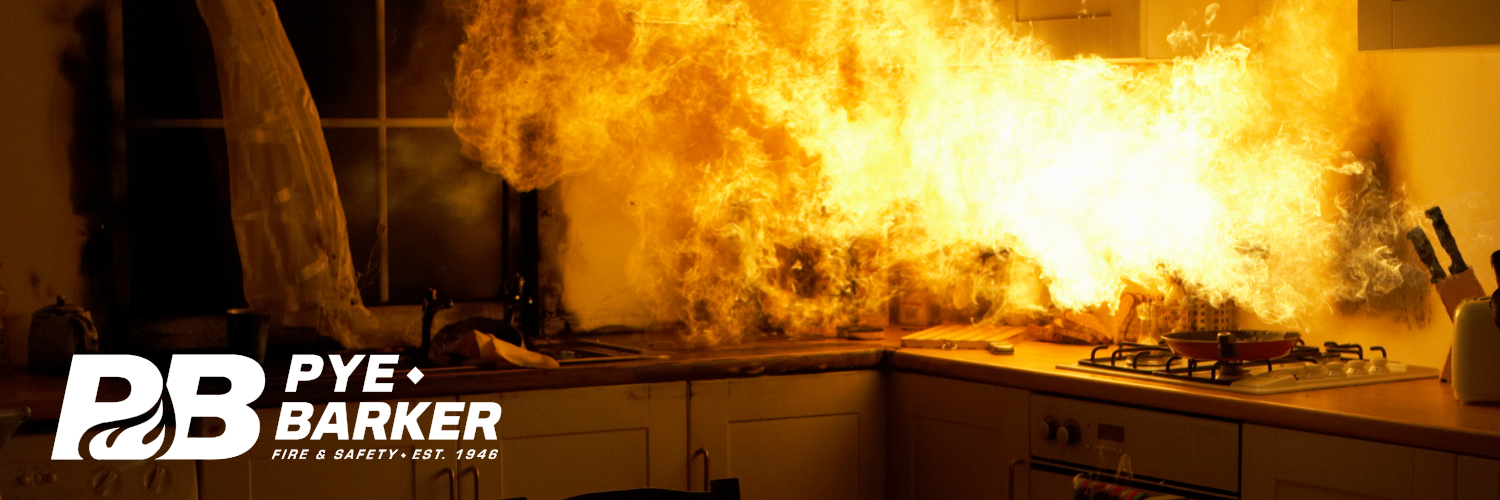The Fire Problem West Texas Property Managers Can't Ignore
Your residents are cooking dinner. It's 6 PM on a Tuesday, and someone's distracted by their phone while oil heats on the stove. In 74% of apartment fires, this is how it starts.
The numbers aren't abstract anymore. Lubbock's Stratford Place Apartments lost an entire building in 2020—61 people displaced, 25 kids without homes, complete demolition required. University Club Apartments had someone in critical condition this February. The pattern keeps repeating across West Texas, and it's not slowing down.
Here's what property managers need to know about protecting their investments and their residents.
Cooking Fires: Your Biggest Threat
Forget everything else for a moment. Cooking equipment causes 74% of apartment fires nationally. That's not a typo—three out of four fires start in the kitchen.
The good news? Most cooking fires stay small if you catch them early. The bad news? When they don't, average damage hits $47,300 per incident. And that's just property damage—not counting displaced residents, liability issues, or the nightmare of rebuilding occupancy.
The Amarillo Fire Department just dealt with a laundry room fire at Huntington Pointe Apartments. Contained to one room, $1,500 in damage, no injuries. That's what contained looks like. But when fires spread through shared attic spaces—like at Stratford Place—you're looking at total loss.
What Actually Works
Sprinkler systems aren't optional anymore. Here's a statistic that should get your attention: Over the past 10 years in Texas, zero people have died in apartment fires when buildings were fully sprinklered. Zero. Meanwhile, 114 people died in non-sprinklered buildings during the same period.
Smoke alarms save lives, but only if they work. Every bedroom, outside sleeping areas, on every floor. Test monthly. Replace batteries annually. Replace the whole unit every 10 years. Most fatal fires happen when people are sleeping—working alarms are the difference between waking up and not waking up.
New technology is changing the game. Automatic stove shutoff systems like FireAvert can detect risky cooking behavior and cut power before fires start. Some property owners report zero kitchen fires over six years of tracking after installation.
The West Texas Reality Check
Look at recent incidents across the region. Dominion apartments in Lubbock had an attic fire that displaced residents—firefighters noted the "complicated layout" made suppression challenging. Parkridge Place had a fire start underneath the building, requiring crews to cut holes in apartment floors to reach it.
These aren't freak accidents. They're predictable problems with known solutions.
Shared attic spaces accelerate fire spread. Complicated building layouts slow firefighter response. Concealed areas underneath buildings hide problems until they're emergencies. Address these vulnerabilities during renovations, not after fires.
Professional Fire Safety: Worth the Investment
This is where companies like Pye-Barker Fire & Safety earn their fees. They handle fire sprinkler installation and maintenance, monitor fire alarm systems, conduct regular inspections, and provide 24-hour emergency service. When lives depend on your fire safety systems working, you want professionals maintaining them.
The ROI calculation is straightforward. Average apartment fire damage: $47,300. Cost of proper fire prevention systems and maintenance: significantly less. Factor in liability protection, insurance benefits, and resident safety, and prevention pays for itself.
The Bottom Line
Fire prevention isn't about following codes—it's about protecting your business. Every displaced resident is lost revenue. Every fire creates liability exposure. Every incident damages your property's reputation.
But the solutions exist and they work. Sprinkler systems eliminate deaths. Smoke alarms provide early warning. Modern technology prevents fires before they start. Professional maintenance ensures everything works when you need it.
The West Texas apartment market is competitive enough without dealing with preventable fires. Property managers who get serious about fire prevention protect their residents, their properties, and their bottom lines.
The question isn't whether you can afford to invest in fire safety. It's whether you can afford not to.
1. Are fire sprinklers actually required in my apartment buildings?
For high-rise residential buildings in Texas, yes—complete fire sprinkler systems meeting NFPA 13 standards are mandatory. For existing buildings, retrofit requirements may kick in during major renovations or use changes. But here's the real answer: whether required or not, sprinklers eliminate apartment fire deaths. Zero deaths in sprinklered Texas apartments over the past decade versus 114 in non-sprinklered buildings.
2. What fire safety equipment am I legally required to provide?
In Lubbock (and similar requirements across West Texas): smoke detectors in every bedroom, outside sleeping areas, and in living areas. Carbon monoxide detectors meeting UL 2034 standards outside each sleeping area and on every occupiable level. Fire extinguishers (2A:10B:C minimum) for every 3,000 square feet and each story. Requirements vary by city, so check with your local fire marshal.
3. How much do apartment fires actually cost when they happen?
Average fire damage hits $47,300 per incident—and that's just property damage. Factor in displaced residents (lost rent), liability exposure, insurance claims, renovation downtime, and reputation damage, and costs skyrocket. The Stratford Place fire in Lubbock required complete building demolition and displaced 61 people. Prevention is always cheaper than rebuilding.
4. What's the most effective way to prevent cooking fires?
Since cooking causes 74% of apartment fires, focus there first. Resident education helps, but technology works better. Automatic stove shutoff systems detect risky cooking behavior and cut power before fires start. Some property owners report zero kitchen fires over six years after installation. Combine this with working smoke alarms and proper fire extinguisher placement.
5. Should I hire a professional fire safety company or handle maintenance myself?
Professional maintenance pays for itself. Companies like Pye-Barker handle sprinkler system installation and maintenance, fire alarm monitoring, regular inspections, and 24-hour emergency service. When fire safety systems fail, people die and properties burn. The liability exposure alone justifies professional service, and most insurance companies offer discounts for professionally maintained systems.

